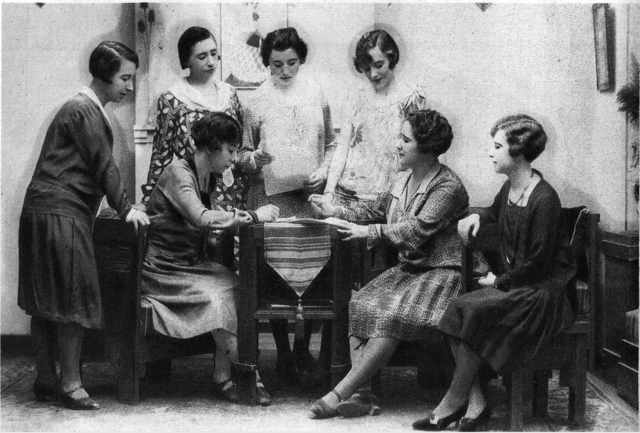Manifesto ‘To the Women of Oporto’, written and distributed by Dr Augusta Rodrigues in 1921
To the Women of Oporto
The Republic has betrayed us. We, who clamoured for it, believing in the equality and respect it would bring us; believing in the dissolution of women’s legal weaknesses in relation to men; believing in the improvement of the lives of our female counterparts who toil in the fields and factories for the pittance with which they hope to support an often vast and open-mouthed offspring; believing in the support for education, which is so lacking in our people, our women, and our children! And yet, we have seen little or none of these craves fulfilled since the Republic was implemented in the centre and south of what was so recently a united country. Where are the schools for women who were illiterate by birth? Where is the daycare for the children of those who work in the factories all day? Where is the right to vote, to directly intervene in our country’s politics? We thought, in our candour, that the Monarchy was the cause of the backwardness that prevailed in Portugal. But then the Republic was established and, of all the amendments we saw, very little was changed with regard to women and children.
Do you know, sisters, what they say in those parts? ‘A woman who knows Latin and a mule who does him rarely have a good end.’ Perhaps one can claim it’s a traditional saying. Nevertheless, in a changed, more enlightened, more educated society, shouldn’t this saying have already been forgotten? However, it remains alive and well, reflecting the flaws that persist regardless of the regime’s shift.
That’s why I say to you: the Republic betrayed us. And when betrayed, isn’t it our moral duty to reflect on our beliefs, our convictions, our ideas? To consider what failed, to find the fallacy of certainties, to discover where tyranny was unconsciously aided?
The deficiency was never the Monarchy, but those who revelled in its power. Let’s identify the individuals, the weeds, and care for them as we would our gardens. Let’s focus our efforts so that good souls are not the exception, but a legion. Don’t discard our good Northern Court out of disbelief in their ability to harbour what rightfully belongs to women. Look at the example of Her Majesty Queen Mary III, the schools she founded, the arts she supported, the industries she patronised! Look at the women who have risen up in roles that were hitherto markedly masculine: the Douro businesswomen, to whom we owe so much for the cultivation of Saccharomyces monarchica, the artists and musicologists, the nourishment of our soul, the military and teachers, unrivalled pillars in this war that is raging against us, the doctors and nurses, workers who give their all to Health… Aren’t they, aren’t we, activists for the values and ideals that we thought we could only achieve through the Republic? And don’t we see the path we had hoped for opening now, not among the Republican society that flog us, unable to recognise our independence, but among the Monarchy, which we so mistakenly despised a few years ago?
Reflect, sisters, and consider the pathway we have already crossed, and the pathway we are yet to cross. The Republic betrayed us at the same time that the Monarchy reached out to us.
Dr Augusta Rodrigues
Surgeon, Hospital Real de Santo António
 "Comité de Juventud Universitaria Femenina", @Jimena Quirós (https://prensahistorica.mcu.es/es/catalogo_imagenes/grupo.do?path=4054650&posicion=2&presentacion=pagina)
"Comité de Juventud Universitaria Femenina", @Jimena Quirós (https://prensahistorica.mcu.es/es/catalogo_imagenes/grupo.do?path=4054650&posicion=2&presentacion=pagina)
Osório, Ana de Castro. (2022). À Mulheres Portuguesas. Projeto Adamastor
Comments